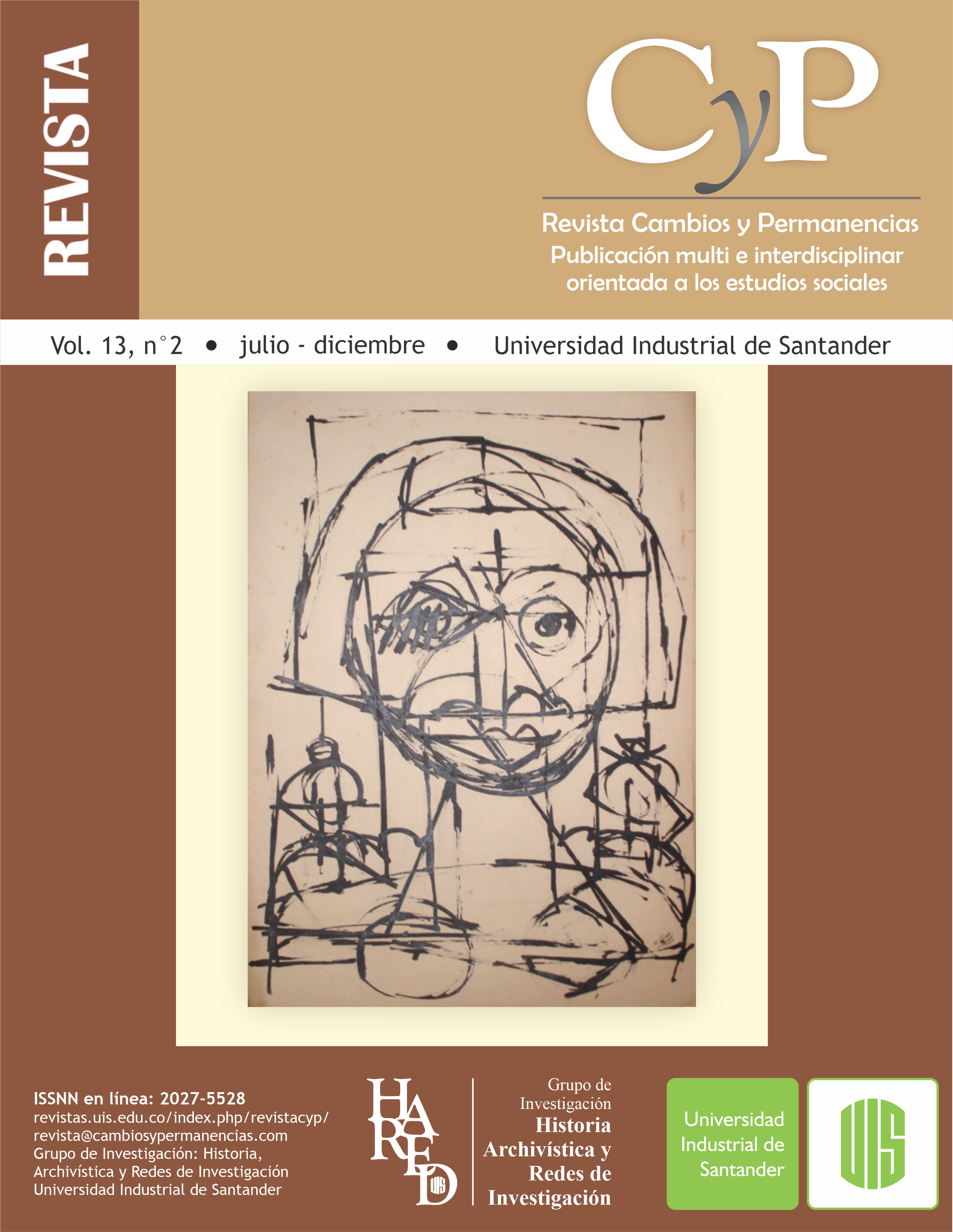Politics and political marketing, as generators of new subjectivities in leaders with community work in the social
Published 2022-11-27
Keywords
- Subjectivity,
- politics,
- ethnography,
- political marketing,
- society and community
How to Cite
Copyright (c) 2022 Revista Cambios y Permanencias

This work is licensed under a Creative Commons Attribution 4.0 International License.
Abstract
Since the emergence of the political in humanity, this has been understood as a phenomenon of mass study involving subjects and groups and is related to the express participation in situated symbolic acts that build bodily territories in the political (Gómez, 2020). Therefore, the collective culture of participation, interpreted and understood through the symbolic in the exercises of power, becomes legitimate and triggers links that engender citizen roles in the production of planned actions in the field of the emergent; revealing a particularity of subjective production overwhelmed in the particular and community social in the political (González & Torres, 2014).
In this sense, the following article investigates the political territories (Deleuze & Guattari, 2002) of subjects who participate in social and community work; and configures subjectivity as a product of the construction of the collective in the practice of politics and through the critical ethnographic design of collecting the voices of the participants, recognizes all the implicit theories proposed by Restrepo (2016) and Guber (2004), providing importance to the belief system that relates to knowledge, attitudes, interests, emotions, appreciations of politics and decision-making in the daily practices of being a political subject. Therefore, for Deleuze and Guattari (2002), the territorialities found from the participants on the political manifest correspondences between the statements, allowing the analysis of the notions present in the installed common sense of those who are enunciated in the writing.
The analysis of the information, based on the categorization of the stories of those involved in the article (García, 1995), made it possible to make visible the particularity in terms of their participation in politics, as a product of the link and connection between story and narrative. and the conceptions of implicit meanings of the experiences, makes an approximation to the production of new social and community subjectivities in what is established by the subject.
It addresses the problem in relation to the territory in the social/community political sphere, proposes an approach from what has been lived and reworked by the participants in the collection of the stories and bursts into the leadership revealed by the voices heard. In this sense, describing the territories that make up the political, to understand the conceptualizations of Deleuze and Guattari (2002), highlights a construction of territory and subjectivity. Thus, the methodology of the research proposed to collect the information was critical ethnography, which, according to Restrepo (2016), allows us to delve into the usual dynamics that take place in a cultural practice, in this case, the political.
In conclusion, the critical interpretive perspective sought to understand what happened in the field between knowledge and actions that, according to Restrepo (2016), constitute the praxis that occurs in the territories, and that for research are observed as knowledge or senses. installed common present in the participants who make life in the political in the social and community. For this reason, the narrative, presented as a network of linked situations of the participants, is not individual for each one of them, but a relationship of shared situations of the exercise of their participation in politics.
Downloads
References
- Arfuch, L. (2007). El espacio biográfico. Dilemas de la subjetividad contemporánea. Fondo de Cultura Económica.
- Deleuze, G., & Guattari, F. (2002). Mil Mesetas. Capitalismo y esquizofrenia. Pretextos.
- García, A. V. M. (1995). Fundamentación teórica y uso de las historias y relatos de vida como técnicas de investigación en pedagogía social. Aula, (7).
- García-Canclini, N. (1995). Consumidores y Ciudadanos: conflictos multiculturales de la globalización. Editorial Grijalbo, S. A.
- Garzón, M. A. (2015). La subjetividad rememorante. Revista Colombiana de Sociología, 38(2), 115-137.
- Gómez, N. (2020). Subjetividad femenina: pliegues y ritornelos en la construcción de territorialidad en mujeres espectadoras del fútbol. Cambios y Permanencias, 11(1), 517-532.
- González, M. I., Aguilera, A., & Torres, A. (2014). Investigar subjetividades y formación de sujetos en y con organizaciones y movimientos sociales. En C. Piedrahíta, A. Díaz & P. Vommaro (Eds.), Acercamientos metodológicos a la subjetivación política: debates latinoamericanos (pp. 49-70). Clacso. http://biblioteca.clacso.edu.ar/clacso/gt/20140425024728/AcercamientosMetodologicosALaSubjetividad.pdf
- Guber, R. (2004). El salvaje metropolitano Reconstrucción del conocimiento social en el trabajo de campo. PAIDÓS.
- Restrepo, E. (2016). Etnografía: alcances, técnicas y éticas. Pontificia Universidad Javeriana.
- Referencias primarias:
- Líderes sociales. (7 de mayo de 2022). Entrevista de (Nemías Gómez Pérez) [audio]. Archivo personal de (Nemías Gómez Pérez).
